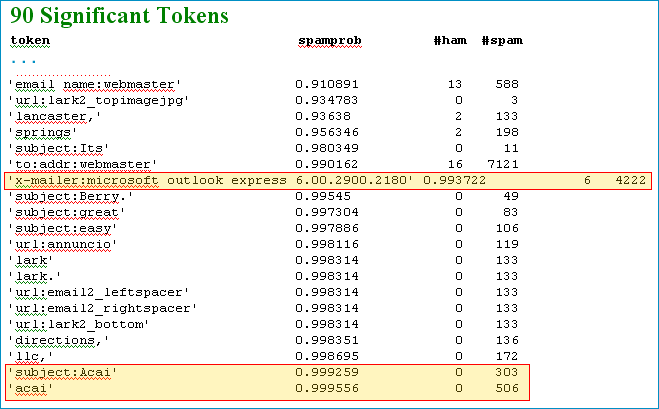Be a NaNoWriMo rebel
After a few days time of pondering, I decided today I will participate in the 2009 NaNoWriMo (National Novel Writing Month). But I am not going to write a novel. So that leaves non-fiction, and labels me a rebel!

Over the previous nine years of NaNoWriMo, enough people have rebelled to warrant a separate special area in the online forums. I would have been a rebel anyway, but it's reassuring to know I'll be joined by others.
I've chosen non-fiction because I want whatever is produced by the end of the month to be something I've always planned to write, even if it is a first draft.
My procrastination to write a book is just as common as the novelist participants; I've always planned to write a book, but it's never gotten off the ground. NaNoWriMo motivates me to attempt to reach the goal and win by writing 50,000 words.
Other things I like:
- Anyone and everyone can be a NaNoWriMo winner
- It only lasts one month
- I'm writing with others, virtually
- I can write anywhere at any time during November
- It costs nothing out of pocket
- The time spent is well spent
- Even if you "lose", there are fringe benefits
Personally, some things I hope to gain:
- Prove my idea is a good one (or disprove it)
- Write a lengthy draft at the fastest speed possible
- Force myself into a daily writing regime, hoping this will ignite my blogging and continuous writing
You may ask, what is my topic? Well, the conversation would probably go something like this,
You: "So you're a non-fiction NaNoWriMo rebel huh? What's your topic?
Me: "Oh... I see what you're after - get your own topic!"
If you've ever planned to write anything - novel or otherwise - consider NaNoWriMo this year.
Spambayes knows about Acai berry
I've been using the terrific anti-spam plug-in Spambayes for years now in Outlook. It takes a very short time to install and configure. What I like is how I tell it how to "train" itself, pointing it to my good email folders - the "ham" - and keeping my "spam" in a separate folder. After the initial training, I just have to help it make some decisions about junk email suspects, by making the final "ham" versus "spam" decision. In the process, my Spambayes gets even smarter.
Only today did I try the option "Show spam clues for the current message"
The results really show me what Spambayes is using behind the scenes to score my messages, based on my personal "ham" and "spam" folders. Not so surprisingly, not one legitimate email I've received has included the term "Acai", and 506 junk email messages have included it. A little surprising to me, 4222 junk emails have been sent using Microsoft Outlook Express 6.00.2900.2180 (or at least identifying themselves as using that software), but only 6 legitimate emails I've received come from that software.
Questioning the significance of blogs and social networks
I've turned my brain to mush reading about all these social networking and twitter opinion pieces and the readers' comments that accompany them. It's all too easy to reach information overload just reading about them, and not actually reading from them. Regardless, I've learned some things along the way, and strengthened some opinions I already had forming.
My personal opinion is, unless you have extremely topical / insightful / thought-provoking / funny / or you're posting first-hand breaking news in your tweets, they're of little value to me or anyone else. I'm not going to read them. I'm far too busy and there are better things to do with my time. This also goes for Facebook status updates. I'm not just a hater; Facebook is good for some things, especially if it promotes turning off the computer and doing things in the real world.
Blog posts are a different kind of animal. Most people spend a fair amount of time composing them, polishing them, and have enough room to support an opinion they may be expressing. Some - like this post - are intended to be thought provoking for the reader.
Do you have your own blog? If not, imagine you do. Would it contain up-to-the-minute local news and events, essays, specialist information on one topic? How is it different than a printed magazine, or a printed newspaper? Do you update it every day, week, or month?
I probably have more questions than I have answers. To find these answers I would first look to traditional historical forms of communication. Think about what books, newspapers, magazines, radio, television, telephone, snail mail, the local pub and others have done well, and adapt it to the new digital medium. The biggest changes made possible by technology is the low cost, far reach, and immediacy of self-publishing.
This blog is still in its infancy, and many of the above questions are still to be answered. The more input I get from readers, the better focussed my content can get. So comments and questions are appreciated. And my goal for now is to post again in less than a month to get some momentum happening.
Email is unpredictable with TELUS deep packet inspection
In our office, some mysterious happening involving email started about two months ago. When I send or forward emails, occasionally they do not arrive. The problems are infrequent, but enough for me to no longer depend on my email reaching its final destination. Of course, there is no error message received that it did not reach the recipient.
To diagnose this strange behaviour, I started to compile a list of emails that I sent and were not received. I suspected something was filtering these messages in transit, and perhaps they had some special ActiveX, Javascript, spam-like qualities, etc. No pattern emerged. Sometimes emails would be delayed - 30 minutes, 5 hours, 2 days - and they finally reached their destination.
Today I looked deeper. The goal: to determine whether our ISP - TELUS in British Columbia - was the cause of this problem. If I am to call a technical support line, I always need at least a little theory why it is happening, backed up by evidence. It's not as though I can just say, "Some of my emails aren't being received, can you do something?" (and then I'd hear stifled laughing on the other end of the line).
So in minute detail, I poured over the email headers of one of my emails. Plain to see is where it was routed:
... by priv-edtnaa12.telusplanet.net (BorderWare Security Platform)
Ah ha. So the presentation I attended a couple weeks ago by TELUS speaking on the subject of deep packet inspection is certainly true. Not that they're using for nefarious purposes in this case, but it is causing me a big headache.
In a little Google search I found an article on InfoWorld that supports my observations ( http://www.infoworld.com/article/08/04/09/15TC-mail-security-borderware_1.html ).
"The BorderWare Security Platform ... had the worst false positive performance of any product tested, and by a large margin."
That's very reassuring to know TELUS is using bottom rung filtering technology. Now I'm no expert in Internet networking and routers and filtering devices. All I know is from a practical user's point of view, this error rate is not acceptable. Seemingly, sending the email while connected to the TELUS network is not enough to prove it's a valid email. I'm a second-rate Internet citizen even to the company I pay to provide the service.
Years ago, TELUS brought in an Internet Security add-on package, which I always turned off or opted out of (it's really useless for savvy computer users). I haven't called to see if I can opt out of this filtering, and I'm not convinced the time spent calling them would yield any results. Instead, I'm spending my time writing this blog post.
My Solution? I'm now sending all my outgoing mail through another ISP. If you experience the same problems, perhaps this story will help you confirm BorderWare Security is the cause. If anyone reading this knows one can opt out of BorderWare Security on TELUS, send me a message or leave a comment.
Word of the day: dirification
dirification (noun) or to dirify (verb).
A relatively new and generally unknown word (there's really no definition I can find), but credit goes to the developer community of the Movable Type blog software for bringing it to my attention. In its original use, it describes the conversion of space characters to either hyphens or underscores. It could have a more general meaning.
I suspect the creator of this word has either forgotten the words "derivation" (noun), "to derive" (verb), or perhaps found them inadequate to describe the process of character conversions. Add this to the list of words representing and erosion or evolution of the english language. How long will it be before the Oxford dictionary, or wikitionary, legitimizes its use?






